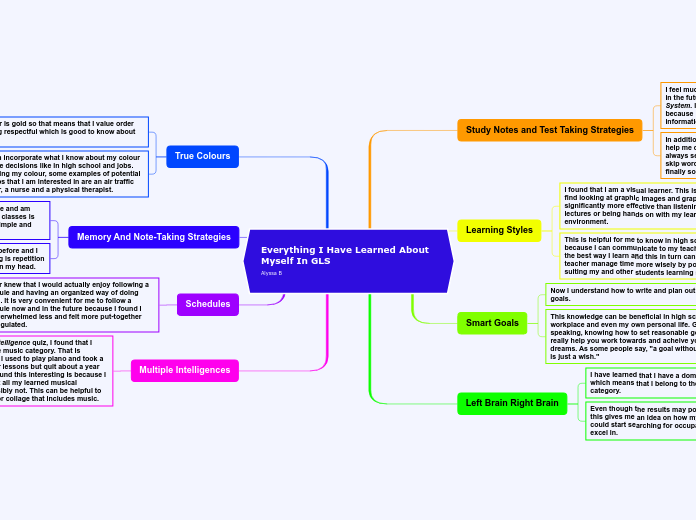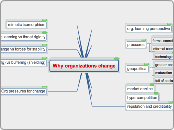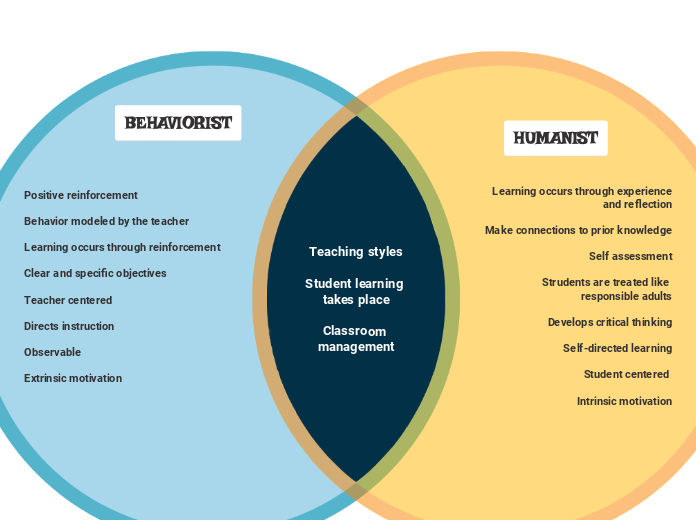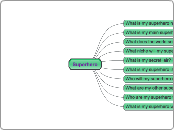Everything I Have Learned About Myself In GLS Alyssa B
The part of speech is a category to which a word is assigned according to its syntactic functions. In English the main parts of speech are noun, pronoun, adjective, determiner, verb, adverb, preposition, conjunction, and interjection.
Multiple Intelligences
A conjunction is a word like 'if' 'but' or 'and' which is used to connect sentences or clauses together.
On the Find Your Intelligence quiz, I found that I scored mainly in the music category. That is interesting because I used to play piano and took a few vocal and guitar lessons but quit about a year ago. The reason I found this interesting is because I thought that I forgot all my learned musical knowledge but possibly not. This can be helpful to possibly find a job or collage that includes music.
Coordinating conjunctions always connect phrases, words, and clauses. They are: for, and, nor, but, or, yet, so.
Schedules
A preposition is one of the most exciting parts of grammar. A preposition is used to describe the location of something in relation to something else.
I never knew that I would actually enjoy following a schedule and having an organized way of doing things. It is very convenient for me to follow a schedule now and in the future because I found I got overwhelmed less and felt more put-together and regulated.
When a preposition consists of more than one word, it is called double preposition.
Memory And Note-Taking Strategies
An interjection is used to express emotion in a sentence.
Think of other interjections!
The memory strategy that I have used before and I have learned that is helpful for studying is repetition to get the topics and key words stuck in my head.
When a preposition consists of one word it is called single or simple preposition.
The note taking strategy that I really like and am hoping to use in my future high school classes is the outline method because it seems simple and easy to create effective notes.
True Colours
An adverb is used to describe a verb, but it can also describe an adjective or another adverb.
Adverbs normally help paint a fuller picture by describing how something happens.
Now I can incorporate what I know about my colour into future decisions like in high school and jobs. Considering my colour, some examples of potential future jobs that I am interested in are an air traffic controller, a nurse and a physical therapist.
The intensifiers strengthen adverbs adjectives and adverbs and down- toners make them weaker.
My colour is gold so that means that I value order and being respectful which is good to know about myself.
Left Brain Right Brain
A pronoun is a word that can be used in place of a noun, typically after the noun itself has already been stated.
Even though the results may possibly be incorrect, this gives me an idea on how my brain works so I could start searching for occupations that I could excel in.
Demonstrative pronouns are used to demonstrate (or indicate). This, that, these, and those are all demonstrative pronouns.
I have learned that I have a dominate right brain which means that I belong to the "creative" category.
Possessive pronouns are used to show possession. The possessive pronouns are mine, yours, his, hers, ours, and theirs.
Smart Goals
An adjective is a word that's used to describe a specific noun and to provide more detail to the listener.
This knowledge can be beneficial in high school, the workplace and even my own personal life. Generally speaking, knowing how to set reasonable goals can really help you work towards and acheive your dreams. As some people say, "a goal without a plan is just a wish."
Superlative adjectives demonstrate a higher level of comparison between entities.
Now I understand how to write and plan out my own goals.
Expresses a comparison between two entities or groups of entities in quality or degree.
Learning Styles
A noun is defined as a person, place, thing or idea. Proper nouns always begin with a capital letter. Common nouns, which are general words, such as 'cars,' are not capitalized.
This is helpful for me to know in high school/college because I can communicate to my teacher/professor the best way I learn and this in turn can help the teacher manage time more wisely by possibly suiting my and other students learning styles.
A noun which refers to a group of things/people.
I found that I am a visual learner. This is because I find looking at graphic images and graphs significantly more effective than listening to lectures or being hands on with my learning environment.
Countable nouns are nouns that can be counted, even if the number might be extraordinarily high.
Uncountable nouns are nouns that come in a state or quantity which is impossible to count; liquids are uncountable, as are things which act
like liquids.
Study Notes and Test Taking Strategies
A verb is an action word or 'doing' word that signifies movement in some way.
In addition, I think the RUMP rule is going to also help me do better on tests in the future because I always seem to rush questions and accidentally skip words so then I do not understand but this is finally something I can do to prevent that.
A modal is a type of auxiliary (helping) verb that is used to express: ability, possibility, permission or obligation. The main modal verbs in the English language are: can, could, may, might, must, shall, should, will, would.
I feel much more confident to take tests and quizzes in the future after learning about the Three Column System. I really like the idea of this strategy because it is very tidy and easy to write and review information.
A linking verb connects the subject with a word that gives information about the subject, such as a condition or relationship.









